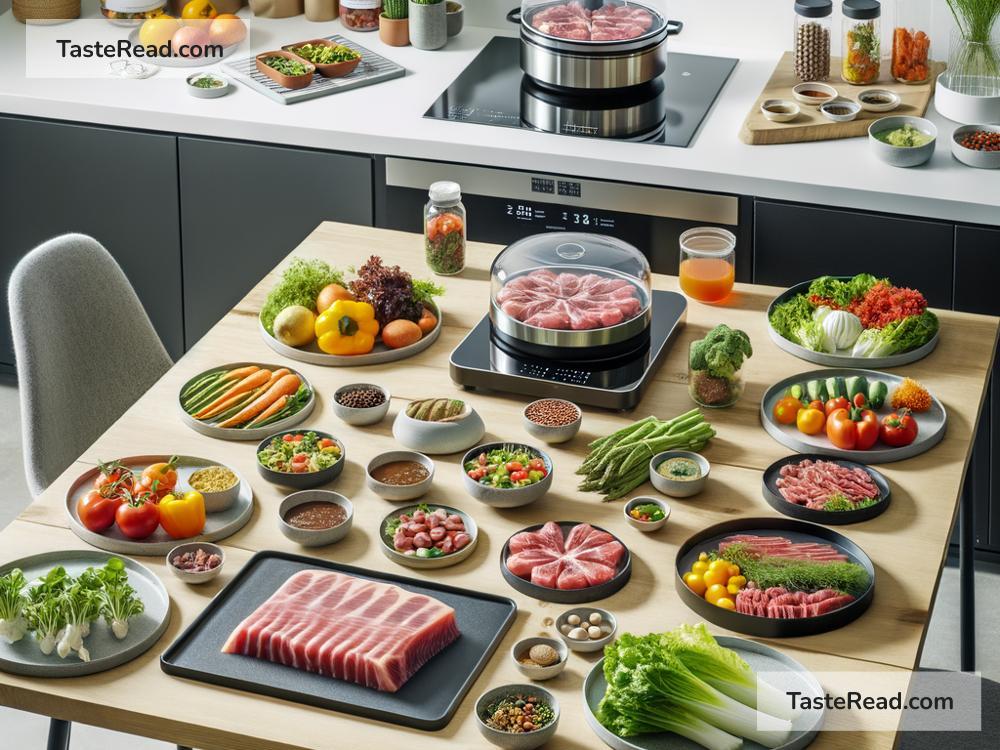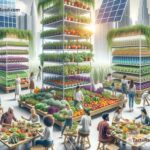The Future of Food and Ethical Consumption: A Simple Guide
Food is something we all need to survive, but it’s also much more than that. The way we grow, produce, and eat food impacts the planet, the economy, and even our health. In recent years, people have started to ask important questions about the future of food and the values behind how it’s made. What will food look like in the years to come? How can we eat in a way that’s healthier, kinder, and better for the Earth? Let’s dive into these ideas in simple terms.
What is Ethical Consumption?
Ethical consumption means making thoughtful decisions about what we buy and eat. It’s a way to ensure our choices are better for people, animals, and the environment. Ethical consumption could involve buying food from local farmers or choosing products that are cruelty-free. It can also mean cutting back on waste or picking foods that come from sustainable sources.
Food isn’t just about eating—it’s connected to many big issues, such as climate change, animal welfare, human rights, and health. By eating ethically, people can make a positive difference in the world.
Challenges Facing Our Food System
Our food system faces several big problems today. Here are just a few:
-
Climate Change: Agriculture and food production are major contributors to greenhouse gas emissions. Raising animals for food, clearing forests for farmland, and transporting food long distances all add to the problem.
-
Population Growth: The global population is growing quickly. By 2050, there may be nearly 10 billion people to feed. This raises questions about how we can produce enough food without further harming the planet.
-
Waste: Did you know that one-third of all food produced goes to waste? This includes food spoiled at grocery stores, leftovers thrown away at home, and crops left unused.
-
Animal Welfare: Many animals raised for food live in poor conditions, such as cramped spaces or factory farms. People who care about ethical consumption often want to support better treatment of animals.
A Look Into the Future of Food
So, what could food look like in the future? Scientists, farmers, and food companies are working on exciting solutions to address these challenges. Here are some trends that might shape the meals of tomorrow:
1. Lab-Grown Meat
Imagine eating a burger made from real meat, but without harming any animals. Lab-grown meat, also known as cultivated meat, is created by growing animal cells in a lab. This process uses fewer resources like water and land and could reduce pollution. It also prevents the suffering of animals raised on farms. While it’s not widely available yet, lab-grown meat could be a major part of the future food industry.
2. Plant-Based Foods
Have you noticed more plant-based meat alternatives, like veggie burgers or oat milk, in grocery stores? These products are growing fast in popularity because they’re better for the environment and kinder to animals. Companies are developing plant-based versions of everything from eggs to seafood. Some people predict that as technology improves, plant-based products will taste even more like the real thing.
3. Vertical Farming
Space on Earth is limited, but food can be grown upwards! Vertical farming is a way of growing crops indoors in tall stacks using advanced technology. Lighting, temperature, and watering are carefully controlled, allowing food to be grown year-round. Vertical farms use less water and take up less land, which makes them a sustainable solution for the growing population.
4. Alternative Proteins
Proteins don’t always need to come from animals. Scientists are exploring creative ways to make protein from algae, insects, and even fungi. Though eating bugs might sound strange, they’re packed with nutrition, require fewer resources to produce, and could help reduce pressure on traditional farming.
5. Food Personalization
In the future, we may have access to personalized diets based on our individual health needs and DNA. Imagine apps or devices that analyze your body and recommend the exact foods you should eat to feel your best. Technology like this could make eating healthier easier for everyone.
How You Can Eat Ethically Today
The future of food is exciting, but you don’t need to wait for lab-grown meat or vertical farms to start making ethical choices. Here are some simple steps you can take now:
- Buy Local: Supporting local farmers helps reduce the environmental cost of transporting food over long distances.
- Reduce Waste: Plan your meals, store leftovers, and compost scraps to keep food waste out of landfills.
- Eat Less Meat: Even cutting back on meat once or twice a week can make a difference for the planet and animal welfare.
- Choose Sustainable Products: Look for labels like “organic,” “fair trade,” or “cruelty-free” when shopping for food.
- Educate Yourself: Learn about where your food comes from and how it’s made. The more informed you are, the better choices you can make.
What Does Ethical Eating Mean for the Future?
The choices we make around food today will shape the world of tomorrow. If more people start to think about what they eat and where it comes from, we can create a future that’s healthier, more sustainable, and kinder to animals. From cutting-edge technologies like lab-grown meat to small efforts like supporting local farmers, every change helps.
The future of food holds many possibilities, and the power to create a fairer, greener world starts with our plates. Together, we can eat in a way that’s good for both ourselves and the planet.

